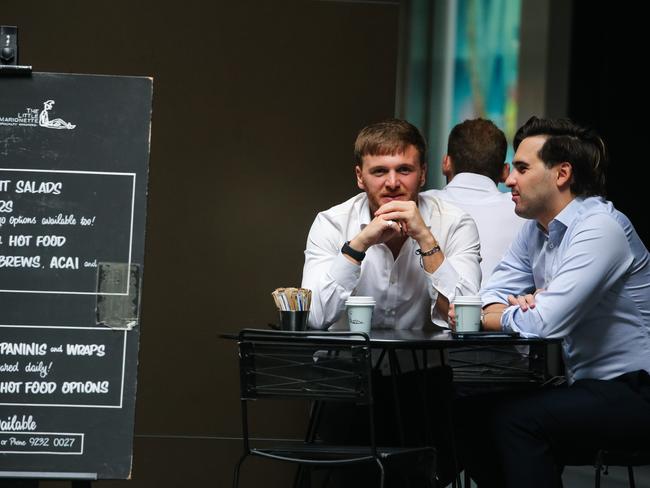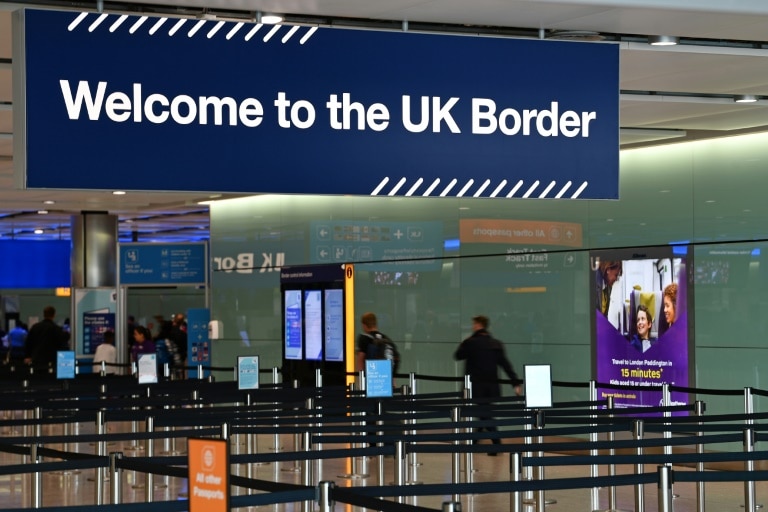‘No going back’: Abbie Chatfield jumps on workplace trend bandwagon
Influencer Abbie Chatfield is embracing a popular new workplace trend for her widely successful podcast – could this be the future?

Breaking News
Don't miss out on the headlines from Breaking News. Followed categories will be added to My News.
Media personality and influencer Abbie Chatfield is making a drastic change to her executive team, while embracing a new workplace trend.
Known for her outspoken views and viral interviews with politicians, including prime minister Anthony Albanese, Ms Chatfield’s podcast – It’s A Lot – discusses hot topics in pop culture, such as the latest episodes of Married At First Sight, issues facing women, while frequently conducting interviews with leading influencers, celebrities and politicians.
The successful podcast host recently announced she was searching for a new executive producer to join its line-up.
As part of the executive shake-up, Southern Cross Media Group Limited – which owns the podcast – would also be trialling a more flexible schedule for the lucky employee, with a nine-day fortnight.

What is a nine-day fortnight?
A nine-day fortnight is essentially a flexible and compressed work week, meaning the person who lands the high-flying role would condense their traditional 10-day fortnight into nine days.
While this usually means the person would have to work a few hours more each day, they would also earn an extra day off.
In other words, they would get a long weekend every other week.
“Our Sydney office is located in World Square, just down the road from Town Hall Station and is currently trialling a nine-day fortnight — with every second Friday off to rest and recharge!” the advertisement read.

Does it benefit employees?
Speaking to NewsWire, founding coach at Sage Advice Raffy Sgroi said flexible working arrangements may “present challenges to employers”, but the benefits for employees and their mental health outweighs any drawbacks.
“By implementing more flexible work arrangements, we’re better catering to the undeniable ‘always on’ nature of working and living today,” she said.
“The rise of digital media consumption means people simply do not – perhaps for some, cannot – ‘switch off’ with as much ease as decades past.”
A shift to a shorter work week could also promote a better work-life balance, which could improve their overall job satisfaction and reduce the chance of burnout, Ms Sgroi told NewsWire.
“Flexibility also empowers employees to work during their most productive hours, enhancing motivation and engagement,” she said.


Is this the future for a ‘modern’ workplace?
The podcast’s nine-day a fortnight role aims to “to support your work life balance”, the job advertisement read, indicating it could be a more common sight for workplaces across the country.
Despite many businesses implementing a return-to-work mandate across the country, the shift to flexible working arrangements are becoming a non-negotiable among employees.
A study from the Committee for Economic Development of Australia (CEDA) found that over one-third of Australians continue to work remotely, with evidence suggesting employees feel more positively towards their job and reduced resignation levels.
Founder of Etiquette Expert and workplace consultant Jo Hayes said flexible working arrangements, such as the nine-day fortnight, were not going away any time soon.
“There’s no going back to the way things once were,” she told NewsWire.
“Once people have tasted ‘freedom’, you can’t tie them back down.
“While, (return-to-work) mandates are being rolled out around the world, companies are realising that if they want to retain quality staff, they need to provide options (and) flexibility, beyond just a good salary.”
Flexible arrangements such as a nine-day fortnight or working from home a few days a week could help “lower anxiety levels”, “boost a sense of freedom” and “enhance positivity”.
“Such flexible work arrangements are not only incentives that help retain quality staff, but
they also go a long way to boosting employee health and wellbeing, which in turn boosts
productivity,” she said.

Ms Sgroi also advocated for more flexible work arrangements, though they come with a caveat.
“I believe the future of the modern workplace should involve more flexible work arrangements,” she told NewsWire.
“However, like any shift, this requires trust, accountability, and a culture change.
“Business leaders must embrace a model where output and deliverables are prioritised rather than the traditional office hours or ‘face time.’
“Business leaders must set clear expectations and measure performance through results, ensuring employees feel empowered to manage their time while being accountable for their work.”
It’s imperative for businesses to adopt strict cyber safety precautions before adopting a more flexible workplace, she added.
“Businesses, from tech start-ups to cafes, can benefit from embracing flexibility,” Ms Sgroi said.
“This could include adjusting opening hours for flexibility or providing more part-time or shift-based roles to ensure staff can work at times that suit their circumstances.
“In return, employees will feel valued, empowered, and more productive, contributing positively to business performance.”
Originally published as ‘No going back’: Abbie Chatfield jumps on workplace trend bandwagon


